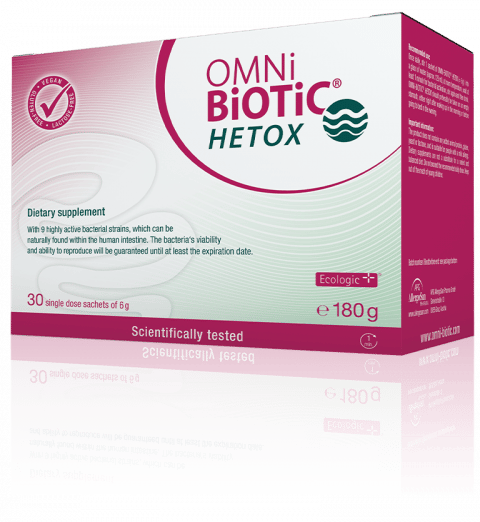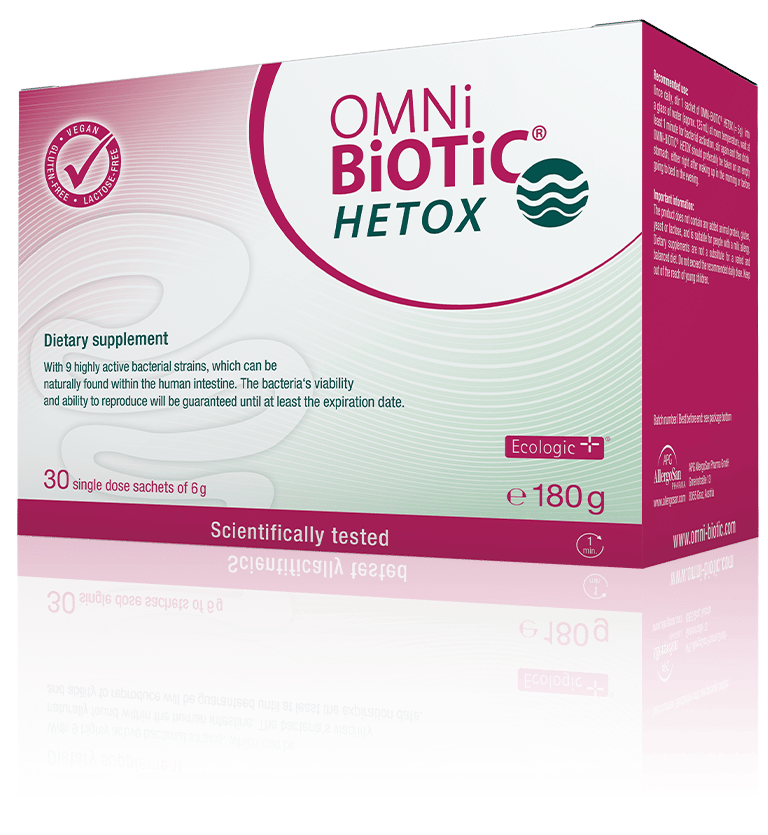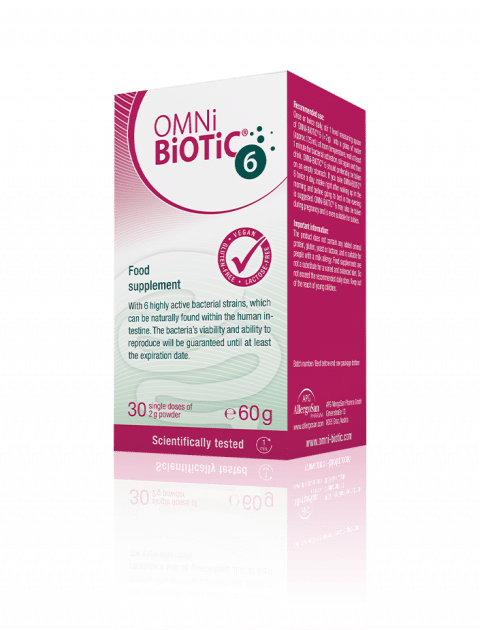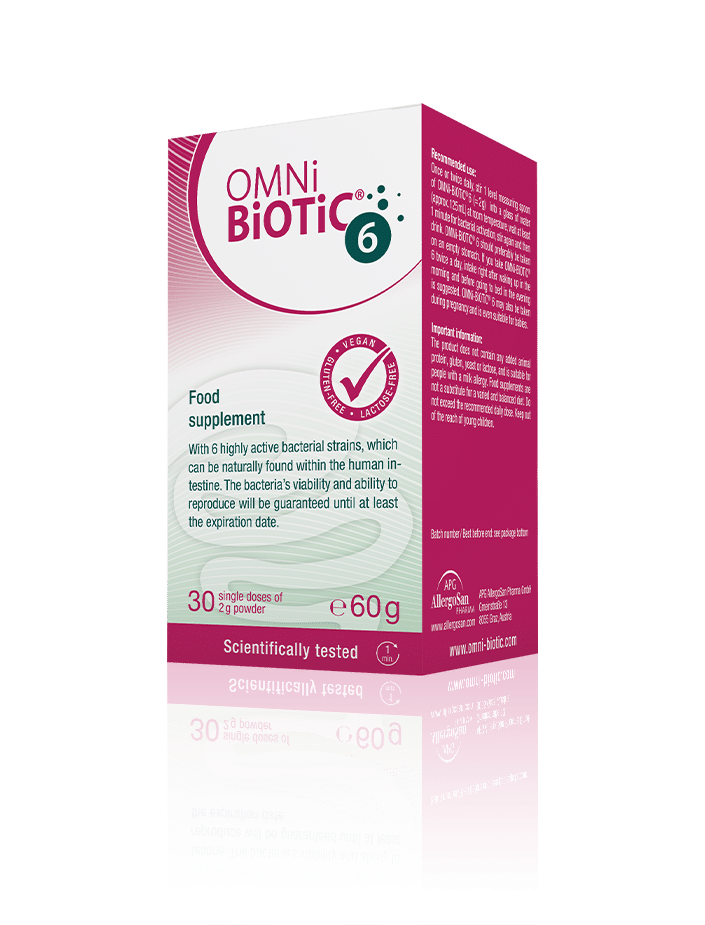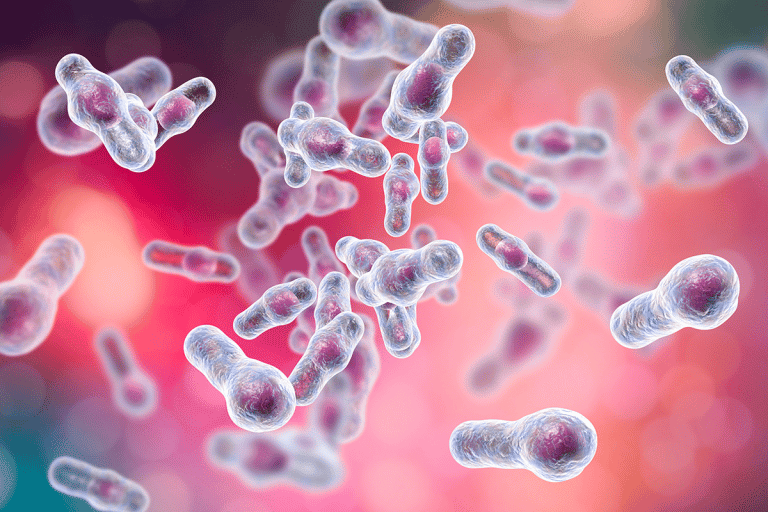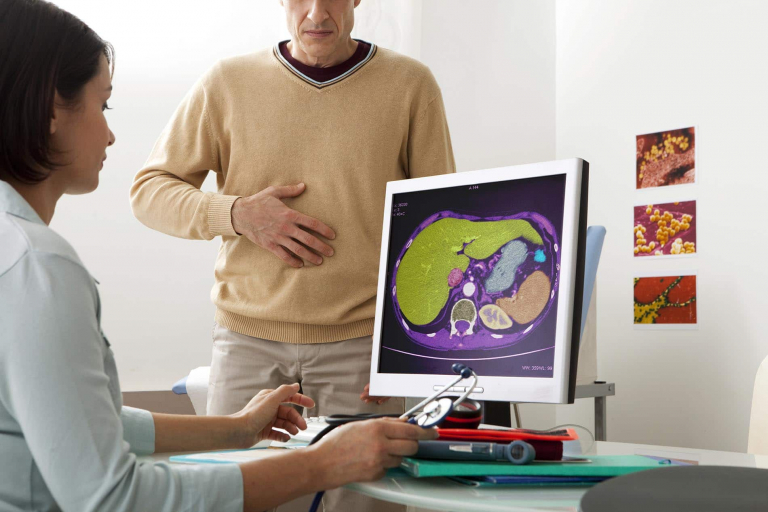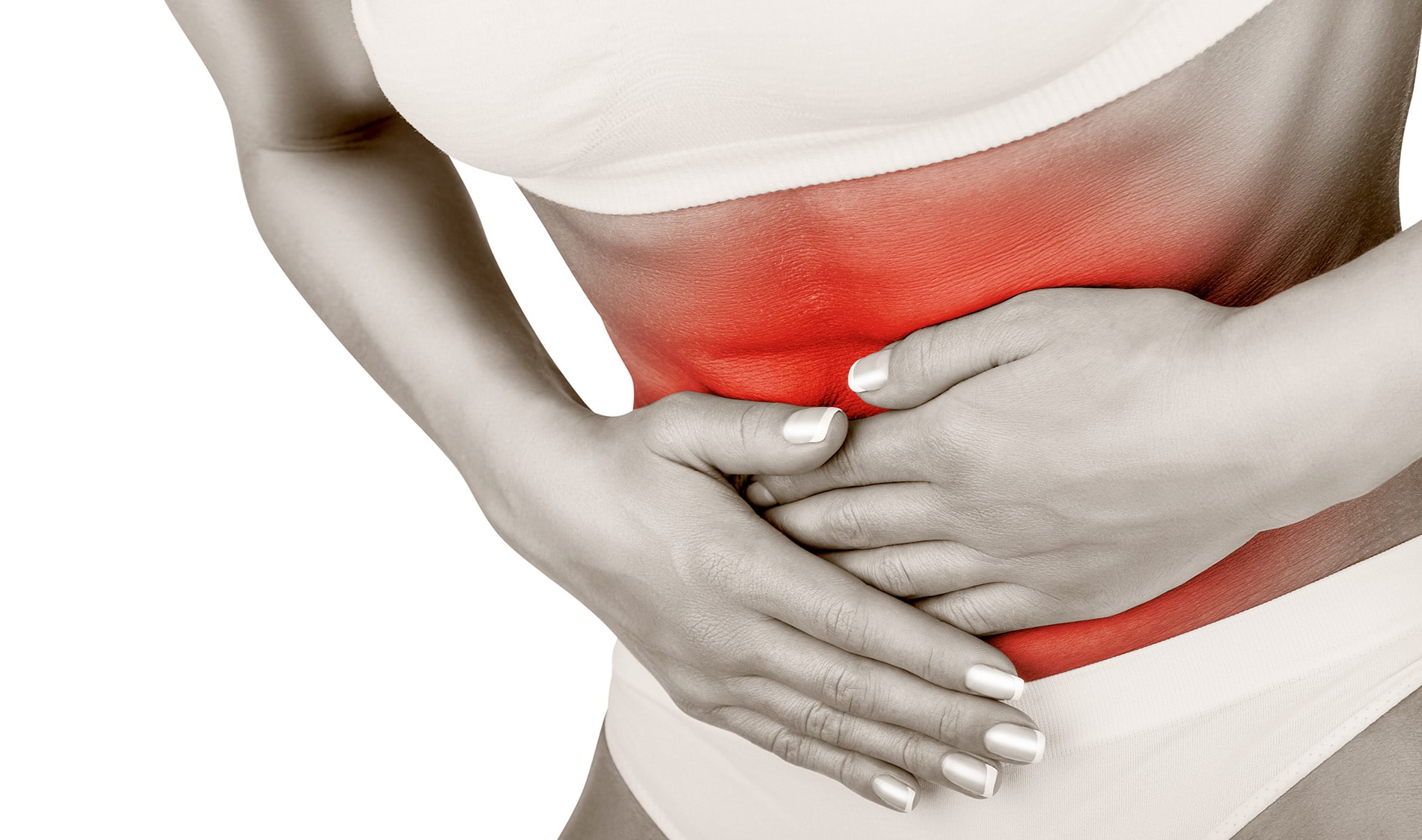
Irritable bowel syndrome
Eating out with friends, an evening at a concert or a longer journey – these are things that many people can enjoy care-free, while people suffering from irritable bowel syndrome are denied these pleasures. When the gut begins a painful revolt, quality of life no longer exists. However, special probiotics effectively target the root cause of these problems.
“Leaving the apartment, shopping trips, relaxed evenings with friends, and every visit to the theatre was unpleasant for me”, says the 28-year-old Verena, “one thought constantly accompanied me: ‘if only that agonizing bellyache wouldn’t come back!’ The knowledge, that at any time I might need to find a nearby toilet, was indescribable.” Just like Verena, every 5th person in developed countries suffers from irritable bowel syndrome. Women are affected roughly twice as often as men. Usually the complaints arise quite early in life, namely in people’s twenties, and then persist for months to years. Complaints such as crampy and dull bellyaches, bloating, flatulence, constipation alternating with diarrhoea, heartburn, belching, bowel sounds, and a feeling of incomplete defecation troubled Verena day after day. “However, the physician I visited couldn’t find an organic cause for my troubles, he spoke of an ‘irritable bowel syndrome’”, the young woman remembers. “Sometimes my tummy made such loud sounds that I was too embarrassed to be around other people. I also had intense heartburn at times, especially when I ate a little bit more than usual” says Verena. This dysfunction of the digestive system may not be dangerous, however, the shame and loss of life quality it causes, often drive many of the affected into despair. Often, people suffering from irritable bowel syndrome also suffer from depression.
What is an irritable bowel syndrome (IBS)?
Especially when a patient is suspected to be suffering from irritable bowel syndrome, thorough diagnostic investigation is essential: It is important to rule out other diseases such as chronic inflammatory bowel disease, infections, ulcers, celiac disease, or food intolerances. Endoscopic examinations are often used, however, other procedures such as ultrasound examinations or even breath tests are also used in the diagnosis of such diseases. Univ.-Prof. Dr. Christoph Högenauer is from the clinical department of gastroenterology and hepatology and is also the director of the Theodor Escherich Laboratory for microbiome research at the Medical University of Graz: “Alarm signals such as weight loss, blood in the stool, and an urgency to empty one’s bowels at night, all speak against the presence of irritable bowel syndrome and point towards other intestinal diseases.”
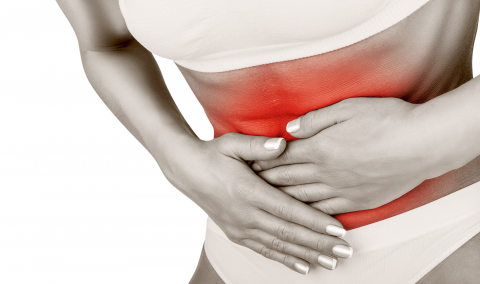
What causes IBS?
Only a few years ago, irritable bowel syndrome was often still being dismissed as “delusion”; for there are no organic indications for the disease. Meanwhile it has become clear that irritable bowel syndrome is a dysfunction of the gut. The causes of this dysfunction are highly diverse: A colonisation of the gut with the “wrong” bacteria can lead to the formation of gases. This occurs when gas producing bacteria have the upper hand and repress other bacteria which are important for digestion. Additionally, this miscolonisation can also lead to an impairment of the gut’s barrier function; the gut becomes permeable, which ultimately leads to a so called “leaky gut”. The protective function of the gut decreases; components and metabolic products of bacteria enter the body and activate the immune system, ultimately leading to inflammation. If bacteria also excessively produce gases from food components, this leads to bloating, a feeling of pressure in the belly, and flatulence. Additionally, constant stretch stimuli combined with hypersensitivity of the gut’s nervous system (visceral hypersensitivity), lead to frequent tummy aches.
The gut is equipped with around 100 million nerve cells which together serve as a kind of “command centre”, while the vagus nerve relays information between the gut and the brain.
Gut and brain – closely linked
Stress and other psychosomatic factors favour changes in the microbiome – but also vice versa. Therefore, these factors are suspected of being a potential cause of irritable bowel syndrome. Microbiome research assumes that the gut and its colonisation have a significant influence on human health. After all, the gut has a surface area which is 100 times larger than our skin’s and contains roughly 80 percent of our body’s immune cells. The gut is equipped with around 100 million nerve cells which together serve as a kind of “command centre”, while the vagus nerve relays information between the gut and the brain. The communication of this “gut-brain axis” was greatly underestimated up till now, because only little was known of this interaction. It was not until 2002, that the bacterial microcosm could finally be researched in more depth. This was facilitated with the help of modern sequencing methods. Despite the short research time, science has made astonishing discoveries in this field: Namely the gut-brain axis regulates how we process stress.
Imbalanced gut bacteria
Researchers succeeded in sequencing the entire human genome roughly 20 years ago; now they are working tirelessly to sequence all the human bacteria. However, there have already been important findings in the field of gut diseases. Christoph Högenauer: “In the course of an inflammation of the gut, pathological germs become prevalent, which leads to a dysbalanced microbiota; this happens for instance in diarrhoea. With the help of genetic sequencing, it has now been shown that people with Irritable bowel syndrome have higher numbers of specific clostridium bacteria in their guts than healthy people. At the same time these people show lower numbers of so called Bacteroidetes bacteria than their healthy counterparts. The afflicted also have a gut flora which shows significantly lower bacterial diversity.” The same is true for patients who develop so called “postinfectious irritable bowel syndrome”. Nowadays it had become clear that irritational gut problems often occur after an infection of the gut. In about 20 percent of the people who suffered from a gut infection, diarrhoea and other symptoms remain even after pathological germs have been eradicated. Also, antibiotic therapies can lead to long-lasting irritation of the gut. These medicinal therapies not only eradicate the “bad” pathogenic germs; the “good” germs which are important for our body’s health, are also killed off. The typical changes in the gut of the affected, show once again that the colonisation of the gut is a highly sensitive ecosystem.

The regular intake of probiotics helps to strengthen the gut mucosa and its barrier function, as well as to prevent or stop inflammatory processes.
Therapy of IBS?
There are various approaches for the therapy of irritable bowel syndrome. The chosen therapy depends on the symptoms a person is presenting: Laxatives are given for constipation or antispasmodics are given for diarrhoea. Additionally, the patient is recommended a diet of soluble fibre and if the patient is under high psychological strain from his disease, antidepressants are sometimes given. However, all these therapies are solely directed at the symptoms; they do nothing against the underlying cause of the complaints.
Verena also experienced these medicinal therapies first hand: “The complaints kept on returning after each therapy, that’s why I began looking for an alternative to get rid of them for good.” By chance she read about pro- and synbiotics, a composition of various bacterial strains which can bring back peace to the gut. In consultation with her physician, she decided upon the path of “de-stressing” in conjunction with a so-called “multispecies probiotic”, a combination of various potent gut bacteria of human origin.
According to the scientist Christoph Högenauer, this approach corresponds exactly with present research results: “A recently published meta-analysis of 35 relevant studies, shows that not all probiotics are equally effective – however, depending on the symptoms and subjective complaints they all have an exceptionally positive effect. When it came to the improvement of the painful symptoms, multispecies seemed to show a superior efficacy than monostrain probiotics.” The summary of all the studies demonstrates that whilst taking a probiotic 21 percent of the afflicted showed an improvement of the IBS typical symptoms, 25 percent had less tummy ache and flatulence. The occurrence of the feared imperative stool urgency could be reduced significantly.
A new study from the Medical University of Graz has focussed on the effect of probiotics on irritable bowel syndrome. The focus of the study was the gut mucosa’s immune system and how anti-inflammatory bacterial strains support the gut to regulate stress-induced dysfunctions. The result: the regular intake of this synbiotic led to a strengthening of the gut mucosa and its barrier function. It also prevented or stopped inflammatory processes in the gut. The “happiness messenger substance” serotonin and the “sleep hormone” melatonin can be produced in adequate quantities once more – the gut becomes peaceful. Meanwhile, even the German Association for Gastroenterology, Digestive- and Metabolic Diseases (DGVS) has added the application of probiotics as a treatment for irritable bowel syndrome. Whereby the choice of the bacterial strains should be adjusted depending on the symptoms. The DGVS also recommend probiotics for the treatment of symptoms such as pain, constipation, and flatulence occurring in patients with irritable bowel syndrome.
Verena’s life has changed completely. Both the crampy tummy aches, as well as the tormenting stool urgency, have improved drastically. She can go out again, take part in excursions, her gut is no longer irritated. Since she has been taking this special synbiotic daily, even job-related stress is no longer such a burden. “I just feel so much more relaxed, and it has also become easier for me to eat healthily. All this is simply good for my gut.”
How to recognize irritable bowel syndrome
Guidelines have been developed for physicians, the so-called Rome III criteria. The diagnosis of “irritable bowel syndrome (IBS)” is confirmed as soon as the following criteria are met:
Within the last year, the patient must experience at least 12 weeks (not necessarily in a row) of pain in the abdominal region or discomfort combined with 2 to 3 of the following characteristics:
- Defecation offers relief from the pain
- The beginning of the pain correlates with altered stool frequency
- The beginning of the pain correlates with altered stool consistency
The following secondary criteria support the diagnosis:
- Abnormal stool frequency (e.g. more than 3 bowel movements a day or less than 3 bowel movements per week)
- Abnormal stool consistency
- Abnormal evacuation of the bowels (e.g. strong pressing is needed, imperative (uncontrollable) stool urgency, feeling of incomplete emptying of the bowels)
- Slimy stool
- Flatulence and a feeling of bloating
The diagnosis requires that there are no underlying structural or biochemical changes of the gut which may explain the symptoms. This makes the exclusion of other diseases of the digestive tract imperative.
Useful tips against IBS
Help from nature
Many plants, herbs, and spices are greatly valued not only for their good taste, but also for their healing power. When it comes to flatulence or cramps, caraway and peppermint have been proven to help. The substances they contain have easing and relaxing effects. Peppermint oil also has an anti-inflammatory effect. Camomile, balm, or lavender are soothing for the stomach and gut; they can be consumed in the form of teas or other preparations. The papaya however, is a true miracle fruit. It is rich in important enzymes, essential fatty acids, trace elements, secondary plant substances, and the vitamins A, B, C and is therefore a true healing all-rounder. With its relaxing effect, it helps against flatulence and belly ache; it even regulates the digestion.
Do something for the soul!
Just relax! Stress causes a riot in one’s gut – especially people with irritable bowel syndrome should respect their inner balance, to keep their gut in balance too. Yoga, relaxation techniques, taking a walk in the fresh air, or autogenic training, all these things can help restore harmony to body and soul.
Eat with consideration!
Try to avoid foods which are hard to digest, such as fried, fatty, and sweet foods and make sure to make note of what you feel is good for you and what causes you complaints. Not every course of disease is the same, that’s why it’s important to create a dietary plan customised to your needs. Make sure to take enough time for every meal, eat out of pleasure. Fluids are also important for the body, ideally still water or tea. A good interplay between the nutrients of high quality foods guarantees that your gut will become stable and offer a powerful defence, as well as ensuring that no bad germs can throw it off balance.
Why probiotics?
Conventional medicinal therapies aim for an easing of the symptoms that irritable bowel syndrome may present. A therapy with pro- or synbiotics tackles the underlying cause of the dysfunction, in the gut and its “flora”. Probiotics are products composed of the natural “good” bacteria which are needed by our gut to accomplish many of its different functions. These microorganisms offer a gentle approach to bringing one’s gut back into balance – and that without any side effects. It is now known that specific combinations of gut bacteria such as bifidobacteria, lactobacilli, lactococci, are effective when it comes to many different gut diseases. But because every combination of bacteria has a unique effect, it is recommended to choose a probiotic product which is specific to the indication.


